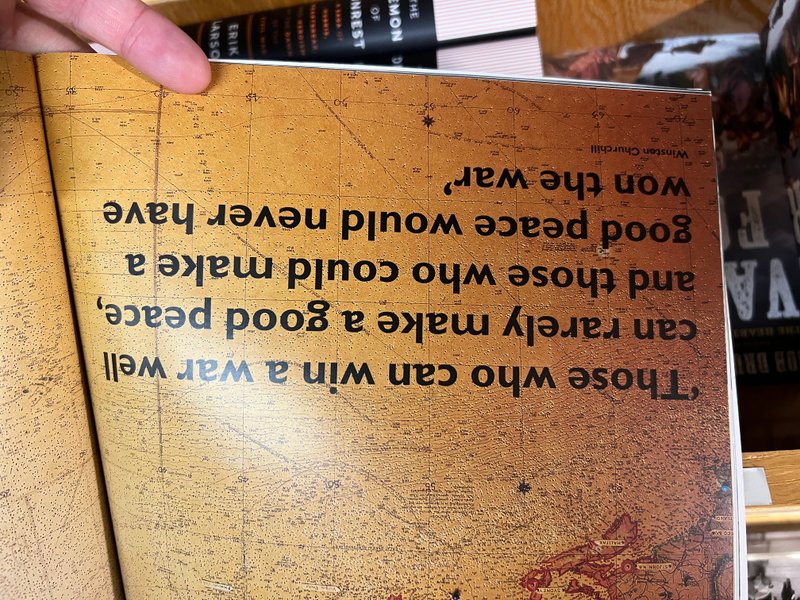Sublime
An inspiration engine for ideas
No army, however brave, can win when its generals are weak.
Kuan Yew Lee • The Wit and Wisdom of Lee Kuan Yew
Shackleton was concerned. Of all their enemies—the cold, the ice, the sea—he feared none more than demoralization.
Alfred Lansing • Endurance: Shackleton's Incredible Voyage
Eisenhower told Mountbatten that mutual respect and confidence among the senior commanders was the most important ingredient in achieving allied unity.
Jean Edward Smith • Eisenhower in War and Peace
Churchill’s position after 1914, as a still very young (forty) senior minister, turned on his vastly greater knowledge of naval and military commanders than that possessed by any of his ministerial colleagues – except for Kitchener. But this was by no means a clear advantage. It bred jealousy at least as much as friendship.
Roy Jenkins • Churchill: A Biography

In one of the most notable statements of modern history, the remarkable UK prime minister Winston Churchill called for the New World, “with all its power and might,” to step forth “to the rescue and the liberation of the old.” Franklin Roosevelt, arguably the greatest president in American history, heeded that call. The industrial power of the
... See moreJeffrey D. Sachs • The Ages of Globalization: Geography, Technology, and Institutions
It has been said that the difference between Hitler’s speeches and Churchill’s speeches was that Hitler made you think he could do anything; Churchill made you think you could do anything.
Boris Johnson • The Churchill Factor

“It is a strategic error to place oneself in a situation contradictory to the moral character of this war,” de Gaulle reminded Churchill.